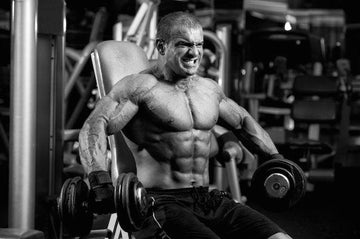

Best Protein for Fat Loss
Table of Contents
Best Protein for Fat Loss
There’s no competition. Not all protein is created equal. Previous studies have demonstrated the ability of whey protein to play a vital role in muscle growth and maintenance, increased satiety and appetite control, and reduction of body fat (specifically visceral fat— the fat the bathes your vital organs), but there is limited data on the effect of whey protein consumption on antioxidant status. The discovery that whey protein may boost antioxidant defenses is significant in that it provides an additional explanation for the positive impact of whey protein on overall health and longevity.
 Whey protein contains an incredible range of essential amino acids, which are absorbed quickly. A recent meta-analysis examining several studies clearly demonstrates that whey protein supplementation with resistance exercise is effective at increasing muscle mass in younger and older populations, and Phillips et al. noticed that participants engaged in 8–16 weeks of resistance exercise gain, on average, 3.0 kg of lean mass compared to 1.0 kg of lean mass gains in the placebo groups of these studies. Researchers examined the acute effects of different dietary protein sources (0.19 g, dissolved in 1 ml of water) on skeletal muscle, adipose tissue and hypothalamic satiety-related markers in rats. The rats received the following treatments:
Whey protein contains an incredible range of essential amino acids, which are absorbed quickly. A recent meta-analysis examining several studies clearly demonstrates that whey protein supplementation with resistance exercise is effective at increasing muscle mass in younger and older populations, and Phillips et al. noticed that participants engaged in 8–16 weeks of resistance exercise gain, on average, 3.0 kg of lean mass compared to 1.0 kg of lean mass gains in the placebo groups of these studies. Researchers examined the acute effects of different dietary protein sources (0.19 g, dissolved in 1 ml of water) on skeletal muscle, adipose tissue and hypothalamic satiety-related markers in rats. The rats received the following treatments:
a) whey protein concentrate
(b) 70:30 hydrolyzed whey-to-hydrolyzed egg albumin- (high-dose whey protein and low dose egg)
c) 50 W/50E hydrolyzed whey-to-hydrolyzed egg albumin- (equal dose of both)
d) 30 W/70E hydrolyzed whey-to-hydrolyzed egg albumin – (low-dose whey protein + high-dose egg protein).
e.) 1 ml of water with no protein as a fasting control.
 At the end of the study, skeletal muscle analyses revealed that compared to control whey protein had the greatest effect on increasing muscle anabolism. Interestingly, the egg protein had very little effect on sustained anabolic activity. So it should be no surprise that whey was the most anabolic protein in terms of stimulating muscle protein synthesis. At the end of the study, skeletal muscle analyses revealed that compared to control whey protein had the greatest effect on increasing muscle anabolism. Interestingly, the egg protein had very little effect on sustained anabolic activity. So it should be no surprise that whey was the most anabolic protein in terms of stimulating muscle protein synthesis. |
In terms of fat burning, the combination of whey and egg protein had some interesting effects. The protein mix containing whey and egg protein at a ratio of 70:30 showed superior effects on the fat mobilizing hormone, Hormone-sensitive-lipase in both subcutaneous and omental fat depots. Subcutaneous fat (which lies just beneath the skin’s surface), and omental fat is tissue located inside the belly, where it hangs underneath the muscles in your stomach. Additionally, the 70:30 mix ((high-dose whey protein and low dose egg)) increased the level of satiety related proteins in the brain. The results of the study at hand would suggest that the pure whey protein may have the pro-anabolic edge, the addition of egg protein, however, appears to make the mix more suitable for fat loss goals, because it will simultaneously increase the level of key proteins that could trigger an increase in fat oxidation and a decrease in energy intake. The dosages of the favorable effects seems to favor high doses of whey protein although adding some egg protein had some interesting effects on favoring fat metabolism.
Higher amounts of whey versus egg protein stimulate the greatest post-treatment anabolic skeletal muscle response, though test proteins with higher amounts of whey protein hydrolysate more favorably affected post-treatment markers related to adipose tissue lipolysis. In sum, your diet should have a high quality whey protein supplement if your trying to build muscle and lose bodyfat.
Mobley, Christopher Brooks, et al. “Effects of protein type and composition on postprandial markers of skeletal muscle anabolism, adipose tissue lipolysis, and hypothalamic gene expression.” Journal of the International Society of Sports Nutrition 12.1 (2015): 14.
Miller PE, Alexander DD, Perez V: Effects of whey protein and resistance exercise on body composition: a meta-analysis of randomized controlled trials. J Am Coll Nutr 2014, 33(2):163-175.
Phillips SM, Tang JE, Moore DR: The role of milk- and soy-based protein in support of muscle protein synthesis and muscle protein accretion in young and elderly persons.J Am Coll Nutr 2009, 28(4):343-354.

















